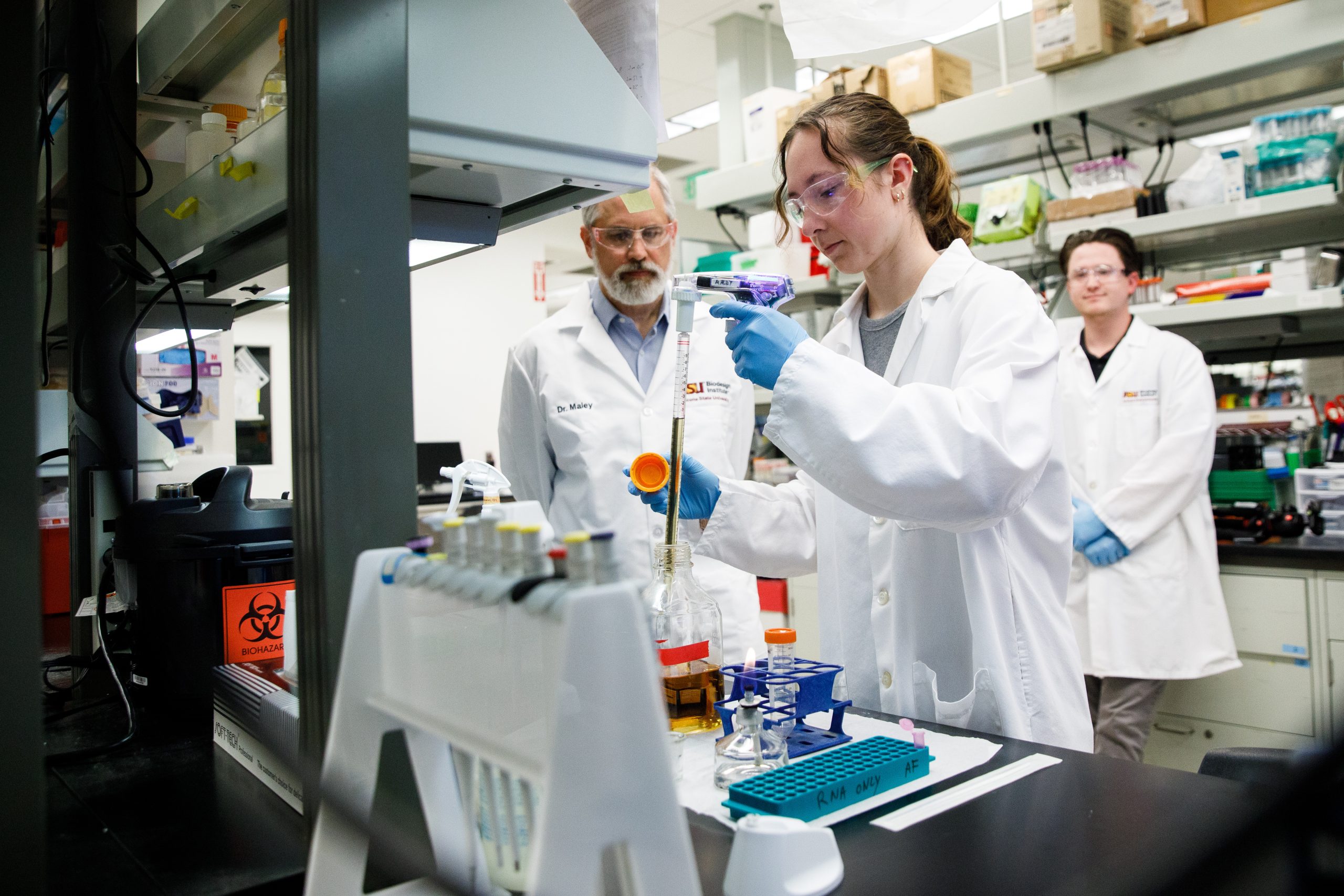Up to $142M in funding announced for research group that includes MIT and Stanford

As part of an Advanced Research Projects Agency for Health program, an ASU team including Carlo Maley (left) will work to advance new computer tools that can better predict how cancer grows and changes. These tools will help doctors choose better treatments faster — before the cancer becomes harder to treat. Photo by Quinton Kendall/ASU Knowledge Enterprise
Every year, about 2 million Americans are diagnosed with cancer, and more than 600,000 of them have cancer that spreads or no longer responds to treatment because of cancer cell mutations.
Researchers at Arizona State University aim to solve this by making cancer care more personal, helping doctors adapt treatments to how the disease changes over time for each patient.
The Advanced Research Projects Agency for Health, part of the U.S. Department of Health and Human Services, announced up to $142 million in funding for personalized cancer detection and treatment. Arizona State University — alongside other top research institutions like MIT, Stanford, UC San Diego, and Brigham and Women’s Hospital — is selected for the program.
The research program will use powerful computer models, new medical tests and flexible clinical trials to help ensure the best available treatments are deployed before tumors have the chance to change. ASU will lead an up to $5.25 million portion of the project, advancing new computer tools that can better predict how cancer grows and changes.
“Nearly everyone knows someone whose life has been affected by cancer,” said Sally C. Morton, executive vice president of ASU Knowledge Enterprise. “This is exactly the kind of innovative and important work ASU researchers are advancing for the public good. And this work underscores the incredible value of university research to the American people.”
The new program will enhance ASU’s already significant cancer research portfolio that is aimed at detecting cancer earlier, providing new therapies and working to cure cancer.
“Our work will deliver predictive insights that help clinicians stay ahead of tumor evolution, target the molecular mechanisms of resistance and offer more effective, individualized treatment plans,” said Kenneth Buetow, principal investigator for the ASU team.
The ASU team — including Carlo Maley, Heewook Lee, Stephanie Forrest and Manfred Laubichler — is working closely with George Vasmatzis and Mitesh J. Borad from Mayo Clinic. The team will help identify and track cancer resistance traits as they develop.
By modeling how cancer evolves, ASU aims to uncover the mechanisms behind treatment resistance and predict the most effective next therapies for each patient.
Patient enrollment in clinical trials is expected within 12 months. Data and tools developed under the program will be made public, promoting innovation across the cancer research community. Continued funding will depend on each team’s ability to meet ambitious research goals.
Learn more about the program on the ADAPT website.
